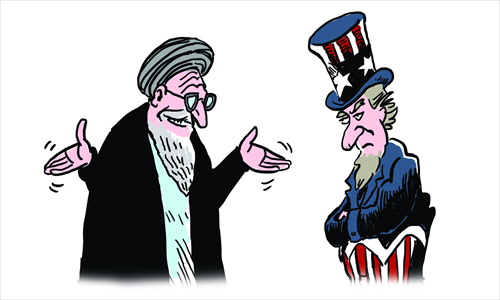Iran decree hopes to end nuclear standoff

Last week, Iran confirmed the fatwa against nuclear weapons issued by the country's supreme leader Ayatollah Seyyed Ali Khamenei.
On January 15, Iran's Ministry of Foreign Affairs made the announcement, suggesting that the edict should end the debate over whether Tehran was pursuing nuclear arms.
Although it is a religious decree, it was issued by Khamenei, who enjoys the country's highest jurisprudent authority. He also has the final say in all Iran's affairs. Therefore, the decree is binding for Iran's government and people.
Khamenei has expressed his opposition to the development of nuclear weapons several times. Iran's government and officials have also reached a consensus and common viewpoint. Iran plans to make use of nuclear energy peacefully instead of developing nuclear weapons.
The EU has imposed restrictions on cooperation with Iran in foreign trade, financial services, energy sectors and technologies, and banned the provision of insurance and reinsurance in its member states to Iran and Iranian-owned companies.
US and EU leaders are trying to tighten restrictions on business with Iran. According to a recent report by the US Energy Information Administration, Iran's oil production fell by 1 million barrels per day in September and October 2012, compared to the same period in 2011.
The living standards of Iranians have deeply deteriorated due to the sanctions. The Iranian government has gradually become aware of this economic and political dilemma.
If Iran ignores the pressure and opposition from the international community, it may face a more dangerous situation and plight. Thus, the predicament has forced Iran to make the change.
On January 15, Iranian foreign ministry spokesman Ramin Mehmanparast said a new round of Six-Party Talks on the Iran nuclear issue would be held in the future. It was reported that the talk would be held in Istanbul, Turkey later this month.
Iran's positive attitude will provide room for maneuver between itself and Western countries.
This is also a window of opportunity which may push forward this round of negotiation. However, there is still a deep divergence between Iran and Western countries.
Western countries believe that Iran is secretly developing nuclear weapons, while Iran has claimed that it only wants to make progress in nuclear energy for civilian use. The ambiguity and divergence can't be dismissed without peaceful negotiations being held.
Mehmanparast's comments come a day ahead of a new round of talks in Tehran with UN nuclear inspectors from the International Atomic Energy Agency (IAEA) over the nuclear program.
The ministry spokesman said Iran was ready to clear up any questions through a deal with the IAEA.
Both Iran and Western countries fully understand each other's bottom lines. Western countries and the IAEA think that Iran should let the public know about its civilian nuclear program. They request that Western countries and the IAEA be allowed to examine Iran's nuclear program at any time.
Iran believes that the agency's suspicions are based on fake intelligence from the US, Israel and other countries. It hopes that Western countries will recognize Iran's right to use civilian nuclear energy.
The structured approach is based on the bottom line of the two sides. However,the divergence between Iran and Western countries is great and cannot be reconciled easily.
The article was compiled by Global Times reporter Zhao Nan based on an interview with Yu Guoqing, an associate researcher at the Institute of West Asian and African Studies at the Chinese Academy of Social Sciences. zhaonan@globaltimes.com.cn